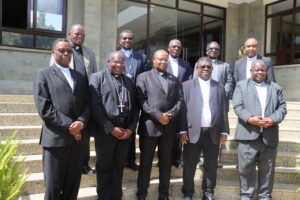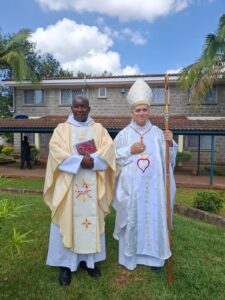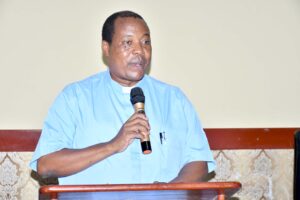AMECEA: “It is time we Rethink Church Communication,” Fr. Kaufa after Maiden Meeting as African Consulter to Vatican Dicastery
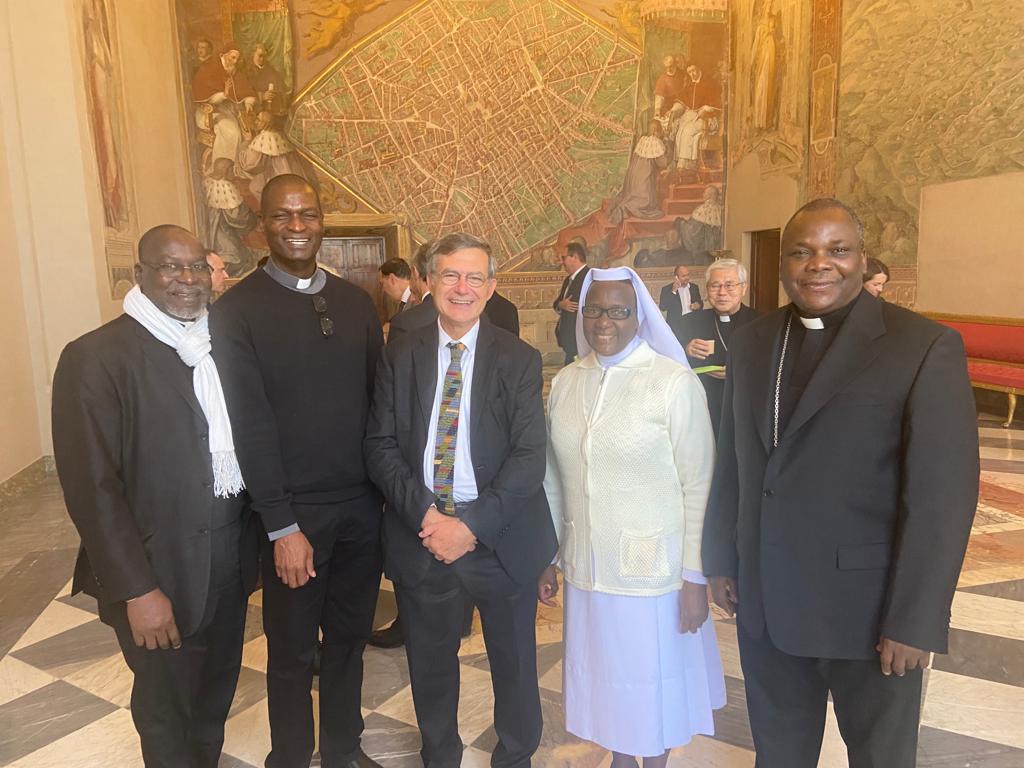
Meeting at the Vatican after his appointment by Pope Francis as a Consultant in the Vatican’s Dicastery for Communications
Sr. Jecinter Antoinette Okoth, FSSA
As new communication technologies keep evolving rapidly, leading to new patterns of thinking, communicating and offering services in various sectors including the Church, AMECEA’s (Association of Member Episcopal Conferences in Eastern Africa) Social Communications Coordinator has emphasized on the need to rethink the structures and financing of the Communication departments in conferences in order to remain relevant for the mission of evangelization in the current local contexts.
Sharing with AMECEA Online Friday, November 18, after his maiden meeting at the Vatican after his appointment by Pope Francis as a Consultant in the Vatican’s Dicastery for Communications, Fr. Andrew Kaufa has highlighted that the Church in Africa can remain relevant in its mission in the contemporary society, by finding better ways of responding to technological advancements, the effects of Covid-19 and the ongoing outcry about future financial sustainability of Church communication activities.
“Seeing how the Dicastery for Communication at the Vatican is undergoing reforms in response to the digital environment, it speaks to me that our Conferences need to take the same path,” the member of the congregation of Missionaries of the Company of Mary (SMM) also known as Montfort Missionaries shared his sentiments adding, “Conferences have departments established several years ago during the analogue era, and a lot has happened in the field of communication since digital migration” hence the need to rethink.
According to Fr. Kaufa, pandemics such as the Covid-19, and new technological advancements among other challenges “have affected the pastoral mission of the Church in Africa,” no wonder the question on how responsive Africa can been to all these challenges.
During the three-day meeting in Rome from November 10-12, which brought together consultants from various regions, directors of different departments at the Dicastery and experts in the field of Information, Communication and Technology from across the globe, Fr Kaufa observed that the Vatican’s communication wing has truly transited in the past seven years since Pope Francis’ call for reform in 2015, a transition which he advocates for all Conferences in Africa to embrace.
“We still have conferences who up to now are stuck in the old technologies. Others are still in discussion on whether or not to continue with print in Africa and whether or not it is the right time to go into television or embrace the use of social media,” the head of AMECEA’s Social communication’s department since 2018, disclosed and continued, “Some Conferences even have questionable capacities to use and manage their websites and social media platforms for evangelization.”
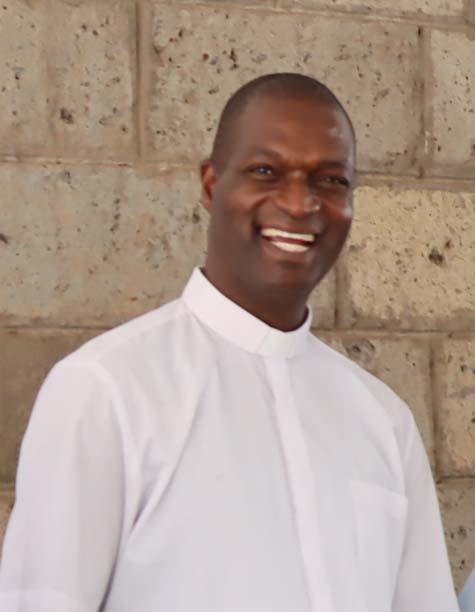
Referencing the message shared by the Dicastery for Communications in relation to reconsidering communication in the Church, Fr. Kaufa quoted the Prefect of the Dicastery Dr. Paolo Ruffini who said in his opening remarks: “The call to rethink Church communication and reorganize it is not for economic reasons but for the purposes of the mission our Lord left us which is evangelization. We need to find new ways of making communication apostolate adequate for the mandate of the Lord to go out and proclaim in our real context today characterized by digital environment.”
Fr. Kaufa further appreciated the representation of the Church in Africa at the Plenary as an opportunity which gave him together with the other two Africans who were present to share more about the way forward for Church communication in Africa especially now as the synodal journey continues at continental level.
The two other Africans who attended the plenary are Sr. Adelaide Ndilu from Kenya Conference of Catholic Bishops (KCCB) and a consulter to the Dicastery for communication and Bishop Emmanuel Adetoyese Badejo who was appointed last year a member of the Vatican Dicastery for Communication and doubles as President of the Pan African Episcopal Committee for Social Communications (CEPACS).
“We were happy to meet there. I could see the joy shared among us who were from Africa. It was the first time to interact with Bishop Badejo at that level and discuss issues related to communication in our continental body SECAM,” the cleric said in his Friday sharing with AMECEA online.
“We had several meetings on how we can begin to work together as people from the same continent so that when we go for such meetings, we are familiar with what is happening and we can share from the level of the continent,” he added.
“In fact, I had a feeling that participants appreciated that Africa is represented in the conversation. It gives an impression that for some time Africa’s voice was missing, “Fr. Kaufa disclosed and continued, “They expressed a need for more involvement of Africa, Asia and the Eastern Church in such meetings.”
Fr. Kaufa further underscored Pope Francis’ message during the meeting where he stressed that “we need to redefine communication not so much looking at the technological gadgets but more in terms of inculcating authentic human relationships and human communications which involves the heart, the feelings and collaboration.”
Besides Fr. Kaufa said, the meeting also discussed the emergence of Artificial Intelligence (AI) as another new thing coming up with ethical concerns in the society after the age of cybernetics.
“Even though the response of the Church to technological advancements is normally not to go against human progress, there was a feeling that we should not reach a point where human beings who are creators of these technologies become slaves of the same product which they produced.”
“These technologies must be at the service of humanity and not human beings at the service of technology. Taking such as direction would hinder authentic human progress,” he said and posed a concern, “There are a lot of positive things in AI but how do we strike a balance?”
Fr Kaufa appreciates the fact that mass media was the first to be tackled by the Second Vatican Council hence the release of the Catholic teaching on the Media of Communication, the Inter Mirifica, in November 1963.
